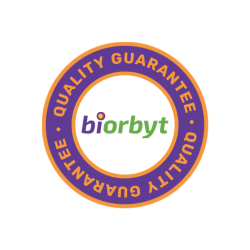You have no items in your shopping cart.
Cart summary

Human CCL17 protein
Catalog Number: orb706818
| Catalog Number | orb706818 |
|---|---|
| Category | Proteins |
| Description | Recombinant Human CCL17 Protein is produced by mammalian expression system and the target gene encoding Ala24Ser94 is expressed with a 6His tag at the C-terminus. |
| Tested applications | ELISA, MS, SDS-PAGE, WB |
| Reactivity | Human |
| Form/Appearance | Lyophilized from a 0.2 μm filtered solution of 20mM Tris, 150mM NaCl, pH 7.5. |
| Purity | Greater than 95% as determined by reducing SDS-PAGE. |
| Target | CCL17 |
| Entrez | 6361 |
| UniProt ID | Q92583 |
| Protein Sequence | ARGTNVGREC CLEYFKGAIP LRKLKTWYQT SEDCSRDAIV FVTVQGRAIC SDPNNKRVKN AVKYLQSLER SVDHHHHHH |
| Source | Human cells |
| Endotoxins | Endotoxin: Less than 0.1 ng/µg (1 IEU/µg) as determined by LAL test. |
| Storage | Lyophilized protein should be stored at -20°C, though stable at room temperature for 3 weeks. Reconstituted protein solution can be stored at 2-8°C for 2-7 days. Aliquots of reconstituted samples are stable at -20°C for 3 months. |
| Buffer/Preservatives | Lyophilized from a 0.2 μm filtered solution of 20mM Tris, 150mM NaCl, pH 7.5. |
| Alternative names | SCYA17 protein, TARC protein, C-C motif chemokine Read more... |
| Note | For research use only |
| Application notes | Always centrifuge tubes before opening. Do not mix by vortex or pipetting. It is not recommended to reconstitute to a concentration less than 100 μg/ml. Dissolve the lyophilized protein in ddH2O. Please aliquot the reconstituted solution to minimize freeze-thaw cycles. |
| Expiration Date | 6 months from date of receipt. |
Human CCL17 protein (Active) [orb359045]
> 97% as determined by SDS-PAGE and HPLC.
8.1 kDa
E.Coli
5 μg, 100 μg, 500 μgHuman CCL17 (C-6His) Protein [orb1471745]
Greater than 95% as determined by reducing SDS-PAGE.
9.1 KDa
Mammalian
50 μg, 10 μgHuman CCL17 Protein, hFc Tag [orb2321411]
The purity of the protein is greater than 95% as determined by SDS-PAGE and Coomassie blue staining.
The protein has a predicted molecular mass of 34.2 kDa after removal of the signal peptide. The apparent molecular mass of CCL17-hFc is approximately 35-55 kDa due to glycosylation.
Mammalian
10 μg, 50 μg, 100 μgCCR4 Protein, Human, Recombinant (His & SUMO) [orb1978850]
98.00%
19.0 kDa (predicted)
1 mg, 100 μg, 20 μgRecombinant Human C-C motif chemokine 17 protein(CCL17) (Active) [orb1650818]
5 μg, 20 μg, 100 μg, 500 μg, 1 mg, 250 μg





